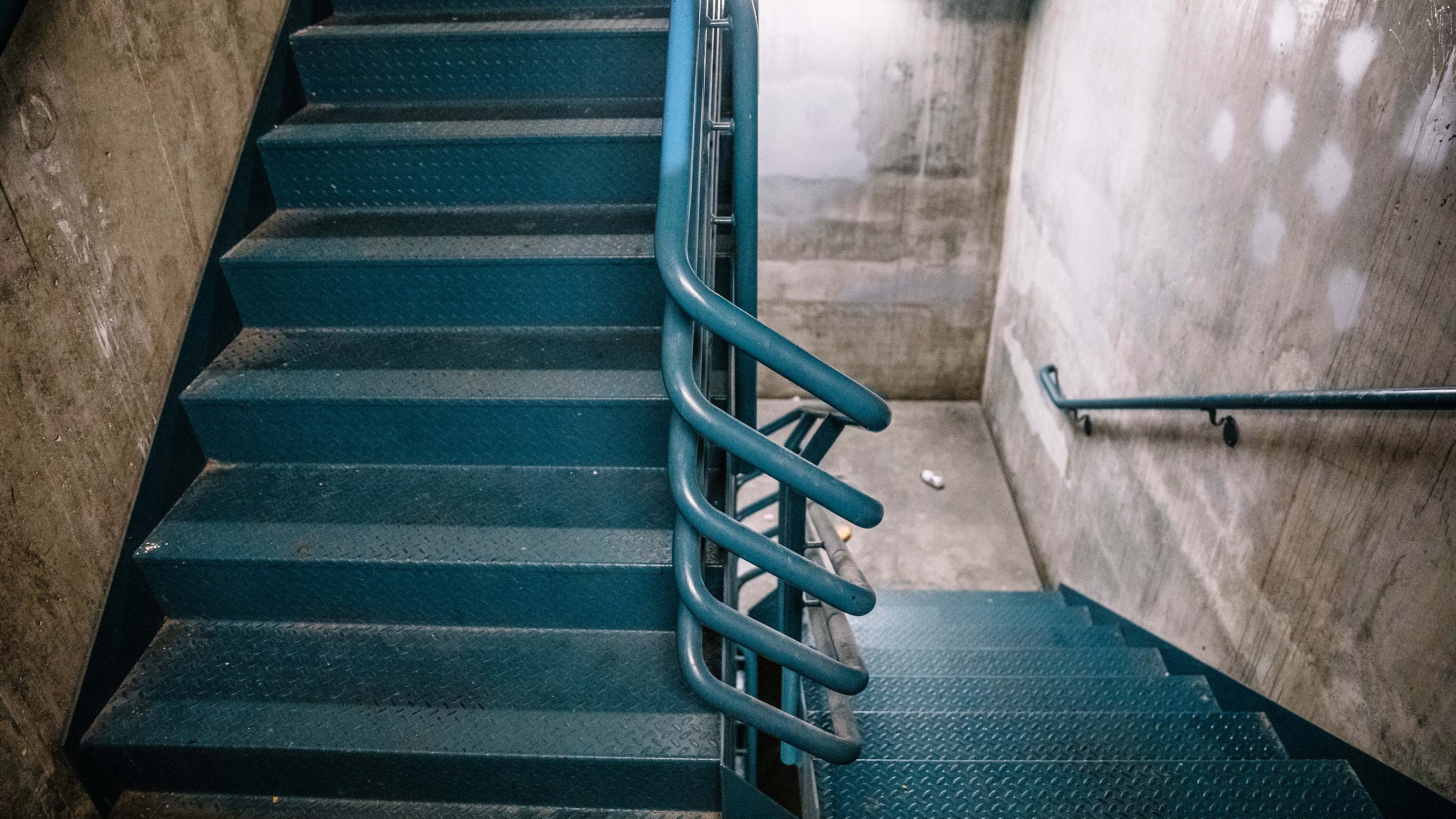Residents of the Museum Place apartment building had plenty of grievances to air at a tenants' meeting last week.
They had long been upset by people shooting up in the stairwells and rooting through the garbage. The apartments, located next to the Safeway on Southwest Jefferson Street, share a stairwell with the grocery store's parking garage—and residents said the property manager of the nine-story building had reduced security patrols, making drug use and squalor there even worse.

Some reported their bikes had been stolen from the building's bike rack. People camped in the parking garage. Several residents complained the handyman had to frequently pick up needles. "That is not his job," the group repeated in a chorus.
These are not uncommon complaints for people living in downtown Portland in 2019. But what sent residents of Museum Place into a fury—and prompted the meeting—was the allegation by federal law enforcement officials Jan. 16 that an international sex-trafficking ring had been keeping an exploited woman, plucked from China and forced into sex work, on the third floor.
"The issues we had prior to this, like homeless people in the garage, people camping outside, people shooting up, that was all going on," says resident David Mullin. "But this thing with the brothel was the tipping point."
The residents of the market-rate apartments—a studio apartment there is listed for $1,478 a month—learned about the alleged sex slavery not from their landlord, but from a story in last week's WW ("The Girls Next Door," Jan. 23, 2018).

For many readers, the revelation added to an ambient feeling that Portland has become crime-ridden and squalid—and that no one is doing anything about it. At Museum Place, the revelation had another effect: It increased tensions between tenants and their landlord.
"With the rent we pay, we should feel safe and secure," says resident Melanie Richardson. "And we don't."
Greystar Real Estate Partners, the Charleston, S.C.-based company that manages Museum Place, did not return a request for comment on this story.
Museum Place was one of seven locations listed in the latest search warrant filed by the FBI in its investigation of a widespread trafficking ring that brought women who spoke little or no English to the U.S., Canada and Australia to work as prostitutes. Records reviewed by WW from Multnomah County and federal court filings show the role it played.
On a January afternoon in 2018, a man texted the number listed in an ad on Backpage.com that showed photos of Asian women posing in lingerie under the "women seeking men" section of the now-defunct website. The person on the other end of the exchange of messages told him to go to the Museum Place building around 4:15 pm with $140.
The man followed a tenant into the building to circumvent the locked front door. He waited in the lobby until a second text directed him to take the elevator to the third floor and knock on Apartment 340.
A woman in a sheer teddy and high heels opened the apartment door, a black cellphone in her hand, and invited the man—actually Portland Police Officer Mike Gallagher—inside. The studio apartment was mostly bare. A little bit of food was left out. White towels, a suitcase filled with lingerie, and money wire transfer receipts were strewn about the room. A towel lay across the bed. A garbage bag filled with unused condoms sat nearby.
Gallagher identified himself as a police officer to the woman, whom WW is not naming because she is a victim of sex trafficking. The Portland police sex-trafficking unit and an FBI agent joined him in the apartment, according to a search warrant later filed by FBI Special Agent June Piniewski. The officers cited the woman for prostitution, but prosecutors later dropped the charge.

The Jan. 5, 2018, bust was a critical moment in a yearslong investigation of the sex-trafficking operation allegedly running brothels in Portland, Tigard and Beaverton. It led law enforcement to seize electronic devices and evidence before eventually arresting six people who allegedly coordinated the crime ring on federal racketeering charges. Federal officials helped connect five victims in Oregon to social services.
"In many cases, these women lack the language skills and understanding of American civil rights to ask for help or assistance from law enforcement," Renn Cannon, special agent in charge of the FBI in Oregon, said in a statement on the case. "For that reason, we need community members who suspect such illegal activity to come forward."
But Museum Place residents say they did not know about it before WW's story last week.
Mullin, Richardson and more than a dozen other tenants decided to ask the property management company for 24-hour security guards and a copy of the company's vetting procedure for approving tenants.
During the meeting, an assistant manager who did not give her name came out of the front office and confronted the group.
"Do you want the $30,000 for security to come out of your pockets?" she asked. "Because that's what's going to happen."
She contested WW's previous reporting, saying the FBI agents told the property management company they had found no evidence of criminal activity when they executed a search warrant two weeks ago. When asked about the Jan. 5, 2018, sting in which the woman was cited for prostitution, she said she had not been working at the building then.
"Nobody is stuck here," the manager told the tenants. "Anyone can decide to pay a lease-break fee and leave."
"That's stuck!" Richardson replied. The dozen other tenants echoed her.

